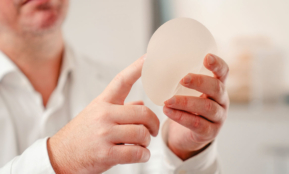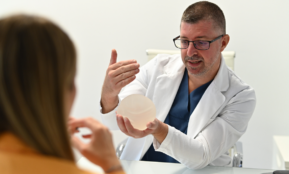Aesthetics
Face
The most modern facial treatments help you look younger, more elegant and happier.
Body
Feel comfortable in your body and correct sources of discomfort.
Chest
Make your wish for a better appearance come true and restore your self-confidence with aesthetic correction.
Hair and scalp
Minimally invasive solutions for hair loss and a natural look.
Issues
Find solutions to some of the most common aesthetic problems.
Treatments
Surgery
Treatments

Hair and scalp mesotherapy
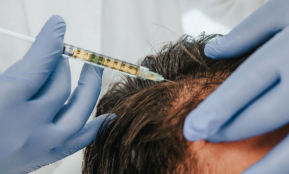
Thinning hair therapy with your own blood

Trichotest – DNA analysis of hair loss and baldness

Hair loss in women – causes and how to prevent it

Hair loss in men – causes and how to prevent it
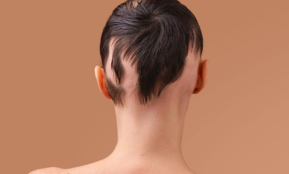
Alopecia – hair loss
FACE
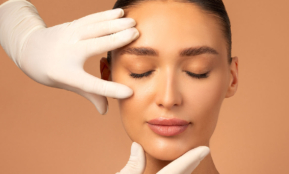
BODY
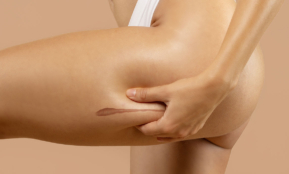
Implantology Center
Different methods of solving the problem of missing one or more teeth.
Prosthetics
The most common solution in cases of functional or aesthetic tooth damage.
Aesthetic Dentistry
Harmonious tooth shaping and tooth color correction according to your wishes.
General Dentistry
Modern and timely diagnostics, treatment and dental hygiene are the key to the health of your teeth.
Issues
Find solutions to some of the most common aesthetic problems.
About us
Locations
Causes of dry and tired skin
Normal skin contains a certain level of water and lipids (fats) that maintain the skin’s softness, elasticity, and protective barrier. When this balance is disrupted, dry skin occurs.
Dry and tired skin can have different causes, and it is often a combination of several factors:
-
Insufficient hydration
Insufficient water intake can lead to dehydration, which is reflected in the skin.
-
External factors
Exposure to cold air and wind, especially during the winter months, can dry out the skin. Excessive exposure to the sun can also cause skin to dry out.
-
Skin care products
Using products with strong chemical ingredients can lead to dry skin.
-
Skin aging
As skin ages, it loses elasticity and its ability to retain moisture.
-
Stress
Stress can affect hormone balance and contribute to dry skin.
-
Genetic factors
Hereditary factors can determine skin type and its predisposition to certain problems such as dry skin.
-
Smoking
Smoking can damage the skin, reduce blood flow, and cause dryness.
The impact of stress on the skin
Stress can have a significant impact on the skin. Neurological and hormonal responses to stress can lead to various changes in the condition of the skin:
-
Acne and pimples
Stress can trigger the production of stress hormones like cortisol, which can result in increased sebum production. Increased sebum can clog pores and contribute to acne and pimples.
-
Irritation and redness
Stress can cause blood vessels to dilate, which can result in redness and irritation of the skin.
-
Psoriasis and eczema
People who already have psoriasis or eczema may notice their symptoms getting worse under the influence of stress. Stress can contribute to the inflammation and itching of these skin conditions.
-
Increased dryness
Hormonal changes caused by stress can affect the lipid balance in the skin, which can lead to dryness.
-
Sensitivity to allergies
People under stress can become more sensitive to various allergens, which can cause skin reactions such as itching, redness, or rashes.
How to revive dry and tired skin
Revival of dry and tired skin requires regular and proper skin care, focused on hydration and protection from external influences.
Hydration can be replenished by using a moisturizer with ingredients that help retain moisture in the skin, drinking enough water and a healthy diet, using adequate sun protection, and visiting a dermatologist or medical cosmetologist who will advise you on the best solution for your skin.
Prevention of dry and tired skin
Preventing dry, tired skin involves a series of steps aimed at maintaining hydration, promoting skin health, and protecting it from external factors. Here are some tips for preventing dry, tired skin:
-
Regular hydration
Drinking enough water keeps the skin hydrated from the inside. It is recommended to drink about 8 glasses of water a day.
-
Direct hydration
Use moisturizers regularly and go for hydration treatments to maintain moisture in your skin.
-
Sun protection
Regularly use sunscreen with a sun protection factor (SPF) to protect your skin from harmful UV rays that can cause aging and drying of the skin.
-
Balanced diet
Eat foods rich in vitamins, minerals, and antioxidants. Omega-3 fatty acids, found in fish, nuts, and flaxseed, can also improve skin health.
-
Rest and sleep
Make sure you get enough sleep because your skin regenerates and renews itself during the night.
-
Regular skin checks
Monitoring the condition of the skin and reacting quickly to any changes can help maintain skin health.
Myths and truths about dry and tired skin
There are various myths and truths about dry skin that can affect perception and proper care.
-
Water heals dry skin
While hydration is important, drinking water alone won't necessarily solve dry skin. External hydration through the use of appropriate creams and treatments is also key.
-
Expensive cosmetics are always better
Truth: The price of a product is not always an indicator of its effectiveness. What matters more is the formulation and composition of the product that suits your skin's needs.
-
Myth: Dry skin means you lack water.
Dry skin can be caused by a lack of water, but it can also be the result of a lack of lipids or problems with the skin's barrier function.
-
Exfoliation worsens dry skin
Gentle exfoliation can help remove dead skin cells and improve the absorption of moisturizing products. It's important not to overdo it with aggressive exfoliation.
BLOG SUGGESTION


